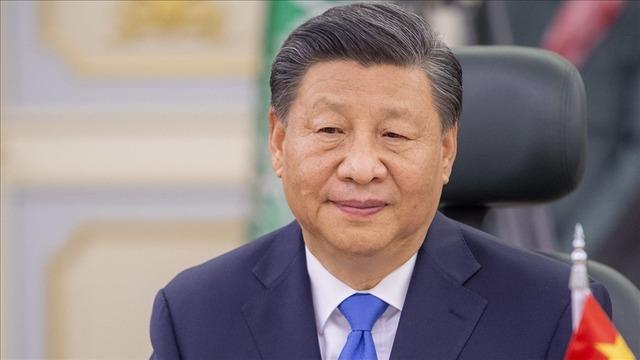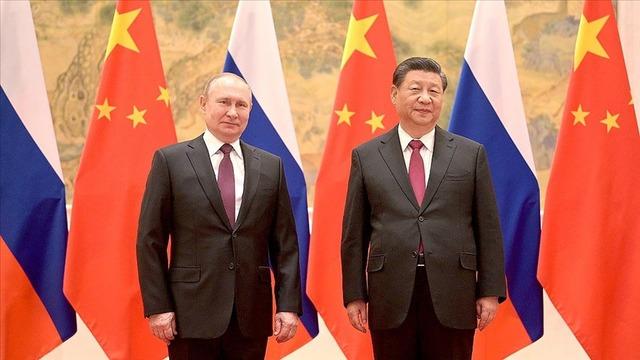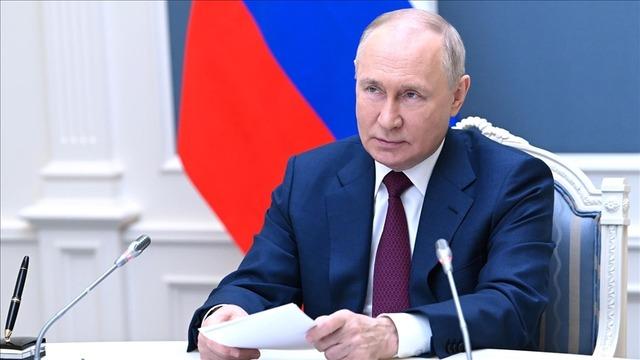The Russian leader met with Chinese Foreign Minister Wang Yi, who visited his country for the China-Russia Strategic Security Consultations, in St. Petersburg, during the days when discussions on the Russia-Ukraine War continued within the framework of the 78th United Nations (UN) General Assembly. He met in St. Petersburg.
According to the statement made by the Chinese Ministry of Foreign Affairs, Putin called for “resisting unipolar hegemony and inter-camp confrontation” and gave the message of “deepening strategic cooperation” during the meeting.
Describing Chinese President Xi Jinping’s visit to Moscow in March as “epoch-making”, Putin said, “The current international situation confirms President Xi Jinping’s strategic verdict that ‘the world is going through changes not seen in a century’.” said.
Putin stated that the agreement reached by the leaders of the two countries during the visit was successful, and that the contacts and cooperation between Russia and China in different fields produced positive results, and said, “Since the beginning of this year, Russia has overcome the effects of the unilateral sanctions of the USA and the West, and the economy has entered the path of growth again.” and the functioning of different functions returned to normal.” he said.
Stating that BRICS has taken a successful step towards expansion with the joint efforts of Russia and China and that he believes that this will take cooperation to a new level, Putin said: “Russia will maintain close coordination with China in multilateral frameworks such as the Shanghai Cooperation Organization and BRICS, ensuring unipolar hegemony and camps.” “Ready to resist inter-governmental conflict and preserve international peace and justice.” made his assessment.
Pointing out that they want to “strengthen strategic planning” and “deepen pragmatic cooperation” with China, Putin stated that Russia supports China’s Belt and Road Initiative and opposes efforts to disrupt and denigrate it. Putin emphasized that they will promote regional integration by strengthening the connection between the Eurasian Economic Union and the Belt and Road.

“DISASTER AGAINST HEGEMONY IS INCREASING”
Wang Yi also reiterated President Xi’s emphasis that “the world has entered a period of change not seen in a century” and said, “In the face of the chaotic international situation, the world is becoming increasingly multipolar and economic globalization is progressing despite opposing tendencies. Unilateral sanctions are not sustainable and dissatisfaction with the hegemony is increasing.” said.
Pointing out that Russia and China, as permanent members of the UN Security Council, have a responsibility to promote development and progress in the world, Vang said, “We should maintain multilateral strategic coordination, protect the legitimate rights and interests of the two countries, and strive for the international order to move in a more fair and rational direction.” We have to show it.” he said.
Stating that they discussed cooperation issues in different fields during the meetings with Russian Foreign Minister Sergey Lavrov and Security Council Secretary Nikolay Patrushev during his visit, Vang emphasized that they are ready to work together with Russia to “develop strategic trust” and “deepen practical cooperation”.

UKRAINIAN PROBLEM
Stating that Putin and Wang also exchanged views on the international and regional situation during the meeting, the Chinese side stated that “Putin reiterated that Russia wants to solve the Ukraine problem through dialogue and negotiation.”
Wang’s contacts in Moscow and his meeting with Putin led to the G7 (Group 7) Foreign Ministers, who came together on the margins of the 78th UN General Assembly held in New York, calling on Moscow to end the Russia-Ukraine War in their joint statement. came next.
In a joint statement published on September 18, the Foreign Ministers of the G7 countries, consisting of the USA, Canada, England, Germany, France, Italy and Japan, called on Russia to “immediately and unconditionally withdraw all its soldiers and war equipment from Ukraine.”
It is observed that the Russia-Ukraine War, which started at a time when China’s geostrategic competition with the USA and regional tensions were increasing, brought the Beijing administration closer to Moscow, which is facing similar challenges, with the perception of a “common enemy”.
While the United States and Europe warn China not to provide arms support to Russia in the war, Beijing, although not selling arms directly, cooperates with Moscow in the field of defense, including joint patrols, military exercises and personnel training, and supports it at the diplomatic and rhetorical level in the UN Security Council and other platforms. continues.
During President Xi Jinping’s visit to Moscow in March, the leaders of the two countries agreed to deepen the “comprehensive strategic partnership coordination” between China and Russia.
Addressing Putin as he bid farewell after his three-day visit, Xi said, “The world is currently going through a once-in-a-century change, and we are leading this change.” she used the expressions. (AA)
